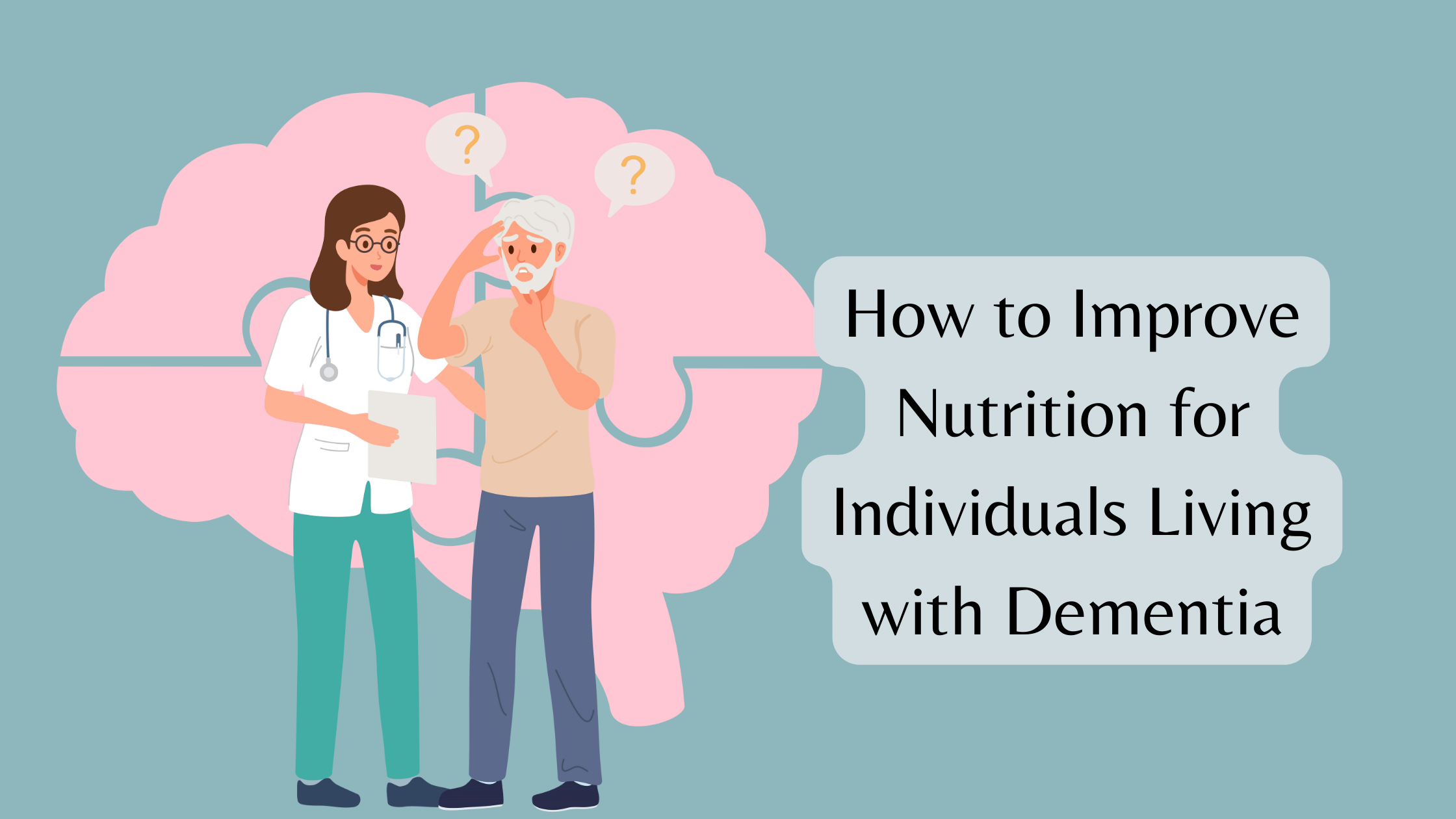
Dementia is a challenging condition that affects millions of individuals worldwide. It not only impacts cognitive function but also has a significant impact on nutrition and overall quality of life. Maintaining proper nutrition is vital for individuals living with Dementia to support their physical and mental well-being.
Impact of Dementia on Nutrition and Quality of Life
One of the key reasons why Dementia impacts nutrition is the decline in cognitive function. Individuals living with Dementia may struggle to plan, prepare, and consume meals independently. They may forget to eat, have difficulty using utensils, or lose interest in food altogether.
One of the key reasons why Dementia impacts nutrition is the decline in cognitive function. Individuals living with Dementia may struggle to plan, prepare, and consume meals independently. They may forget to eat, have difficulty using utensils, or lose interest in food altogether.
One of the best ways to help individuals living with Dementia is to invest in home care for Dementia services that help with meal preparation and mealtime. Home care professionals are trained to make mealtime easier and ensure that individuals living with Dementia get proper nutrition.
Common Nutrition Challenges for Individuals Living with Dementia
Loss of Appetite
Dementia can lead to a loss of appetite or a decreased sense of taste and smell. This can make individuals less interested in food and result in inadequate nutrient intake.
Difficulty With Eating and Swallowing
As Dementia progresses, individuals may experience difficulties with chewing and swallowing, leading to a higher risk of choking or aspiration.
Weight Loss
Unintentional weight loss is a common issue among individuals living with Dementia. It can be caused by reduced food intake, increased physical activity, or changes in metabolism.
Importance of a Balanced Diet for Individuals Living with Dementia
As you may know, maintaining a balanced diet is crucial for individuals living with Dementia as it provides essential nutrients for their overall well-being. Incorporating the right foods into the diet of individuals living with Dementia helps provide them with adequate energy, vitamins, minerals, and antioxidants. A balanced diet consists of a variety of foods from different food groups, including:
- Fruits
- Vegetables
- Whole grains
- Lean proteins
- Healthy fats
Tips for Improving Nutrition for Individuals Living with Dementia
Improving nutrition for individuals living with Dementia involves making modifications to their eating habits and environment. Here are some effective tips to consider:
- Offer small, frequent meals: Instead of three large meals, offer smaller, more frequent delicious senior meals throughout the day. This can help prevent feelings of overwhelm and make eating more manageable.
- Focus on nutrient-dense foods: Prioritize nutrient-dense foods such as fruits, vegetables, whole grains, lean proteins, and healthy fats. These foods provide essential nutrients while being easier to consume.
- Provide finger foods: If individuals living with Dementia struggle with utensils, offer finger foods that are easy to pick up and eat. This can help maintain their independence and enjoyment of meals.
- Ensure proper hydration: Encourage individuals living with Dementia to drink fluids regularly to prevent dehydration. Offer a variety of beverages such as water, herbal teas, and diluted fruit juices.
- Supplement if necessary: In some cases, individuals living with Dementia may require additional nutritional support. Consult with a healthcare professional to determine if supplements are necessary.
Improving nutrition and quality of life for individuals living with Dementia is of utmost importance. Remember, you play a vital role in providing the care and support needed to improve nutrition and quality of life for your loved one living with Dementia.